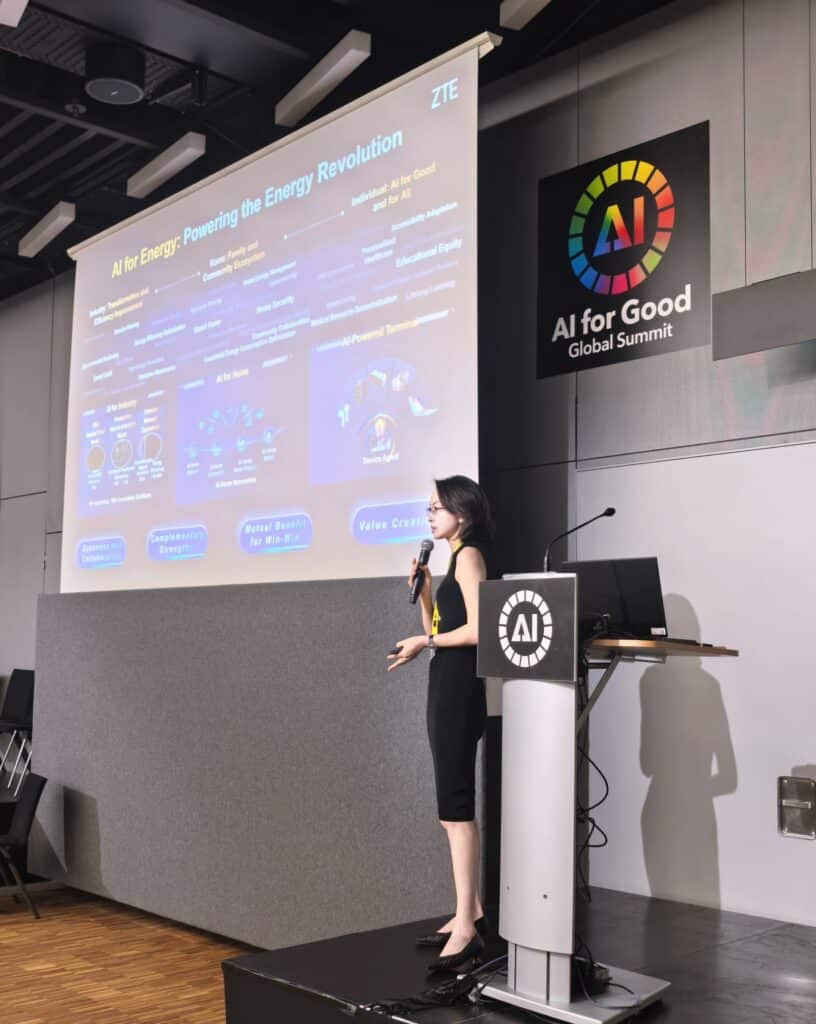At the AI for Good Global Summit held at the United Nations headquarters in Geneva, ZTE Corporation’s Chief Development Officer (CDO), Cui Li, emphasized the vital role of efficient and environmentally friendly artificial intelligence as a key driver toward achieving Sustainable Development Goals (SDGs). During a workshop titled “Navigating AI, Energy, and Environment Toward a Sustainable Future,” Li delivered a presentation showcasing ZTE’s initiatives to promote a new AI paradigm focused on sustainability.
Li’s core message was clear: “Artificial intelligence should cease to be an energy burden and instead become a tool that also helps reduce the carbon footprint of the tech sector and society as a whole.”
### An Energy Efficiency Dilemma in the Era of Giant Models
The ZTE representative warned about the so-called “inverted triangle dilemma” facing the tech industry, caused by the rise of large-scale language models (LLMs), which demand increasing processing power and are driving up energy consumption. She emphasized that efficiency must be the guiding principle for current technological development and outlined ZTE’s strategy to address this at three levels: infrastructure, cognitive capabilities, and operational processes.
According to Li, ZTE is investing in high-performance infrastructure to reduce energy use without sacrificing capacity, optimizing AI algorithms to improve the ratio of computation to energy consumed. The company also advocates for more agile industrial processes that allow scalability without compromising sustainability.
### “Energy for AI” and “AI for Energy”
During her speech, Cui Li articulated a vision centered on two conceptual axes: “energy for AI” and “AI for energy.” The former refers to the need to design energy-efficient systems to support the growth of AI models, while the latter focuses on how AI can be an ally in optimizing energy consumption across industries, cities, and households.
In this regard, she highlighted that ZTE has integrated artificial intelligence across its ICT solutions, developing end-to-end intelligent products. These systems are already deployed in multiple sectors, generating operational efficiencies, reducing costs, and supporting the energy transition.
### A Sustainable Future Enabled by AI
Li concluded her speech reaffirming ZTE’s commitment to the vision of “AI for All” and to promoting technologies that actively contribute to SDGs. She believes the challenge is not only technical but also ethical and strategic: “We must accelerate access to AI but also ensure we do so responsibly, efficiently, and with a positive impact on the planet.”
As a major global provider of integrated telecommunications and information technology solutions, ZTE considers its “green AI” approach essential for facilitating a more sustainable, inclusive, and resilient digital infrastructure.

